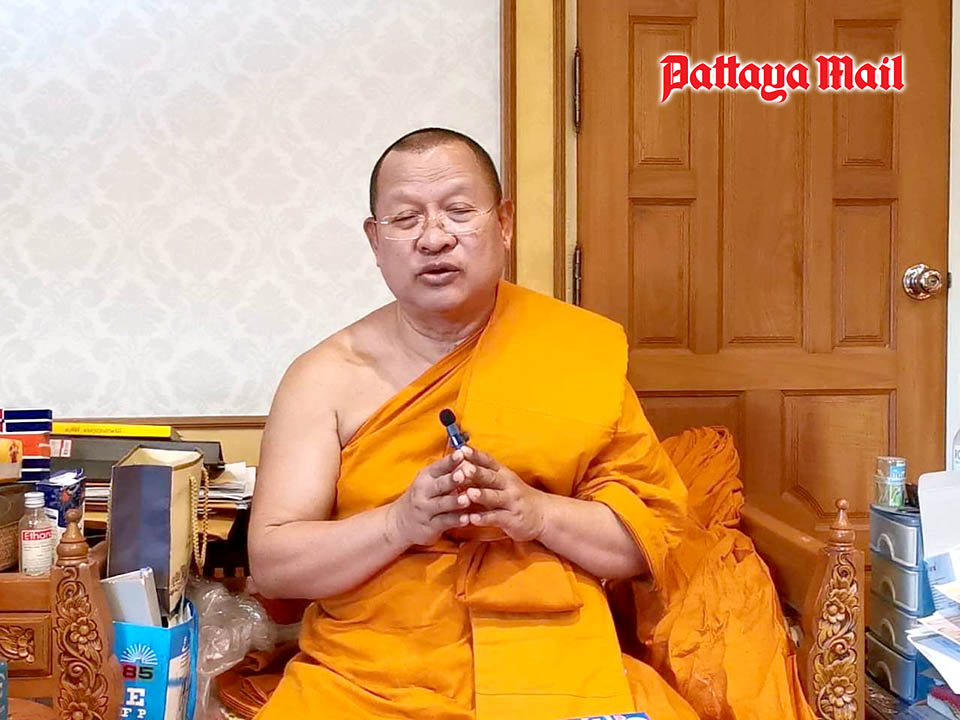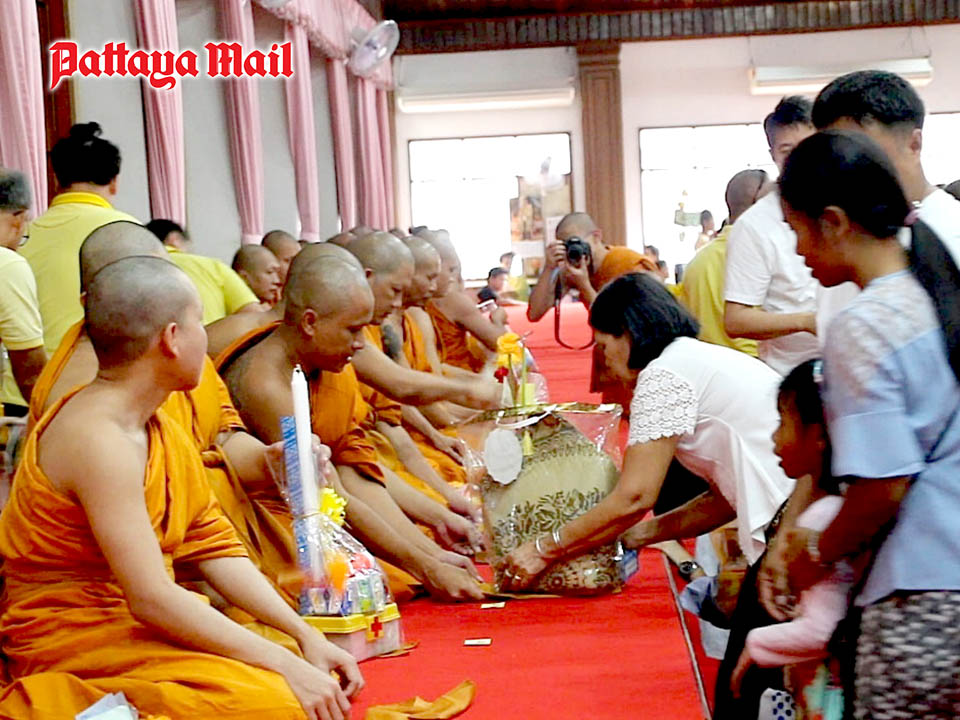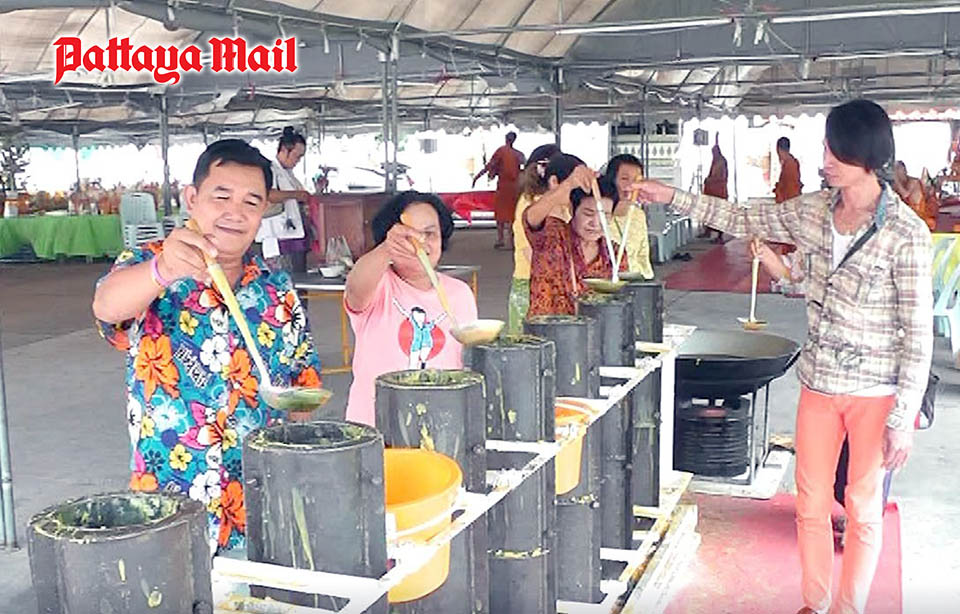
Pattaya, Thailand – Phra Rajasarn Sophon, Chief Abbot of Wat Chai Mongkol Temple in South Pattaya, has unveiled a range of activities available to the public during the sacred period of Buddhist Lent. On July 31, the local Buddhist community was informed about engaging in acts of merit beyond temple visits, with a notable practice being abstaining from alcohol consumption for a period of three months.
The tradition of abstaining from alcohol during Buddhist Lent is widely observed by Buddhists nationwide, serving as a spiritual practice to purify the mind and body. The three-month period offers devotees an opportunity to accumulate merits, generate positive karma, and improve their overall well-being. By adhering to this practice and avoiding negative actions, individuals can cultivate inner peace and purity of heart.
Furthermore, on August 2, Wat Chai Mongkol Temple opens its doors for Buddhists to participate in a meaningful ritual of offering small bouquets and rainwater-soaked cloth to monks staying in the monastery during Buddhist Lent. Additionally, the monastery provides an opportunity for devotees to take part in a candlelight procession, marking the conclusion of the Buddhist Lent period on the same day.

Moreover, on August 13, the Chief Abbot will lead a group of Buddhist followers in a sacred pilgrimage of presenting candles and paying homage to 39 temples in Aranyaprathet District of Sa Kaeo Province. This significant event aims to foster Buddhist unity and strengthen religious connections among the Thai communities nationwide.
The age-old custom of offering candles during Buddhist Lent holds deep cultural significance, passed down through generations. During this time, monks engage in a three-month monastic retreat, and Buddhists present candles as an offering, seeking blessings and spiritual illumination for both their present life and their afterlife. The act of offering candles is believed to bring prosperity, honor, and fortune, transforming life’s challenges into positive experiences. It fosters harmonious relationships among individuals and earns the affection and respect of both humans and celestial beings.
As Buddhist followers actively engage in these sacred rituals during the Buddhist Lent period, they are encouraged to cultivate wisdom, mindfulness, and spiritual insight. Striving to attain the Dharma, they lead their lives with compassion, kindness, and virtue. These acts of merit not only enhance their current existence but also guide them towards enlightenment and the ultimate state of liberation. The practices during Buddhist Lent offer devotees a profound opportunity for self-improvement and spiritual growth, forging a path towards greater peace and enlightenment.








